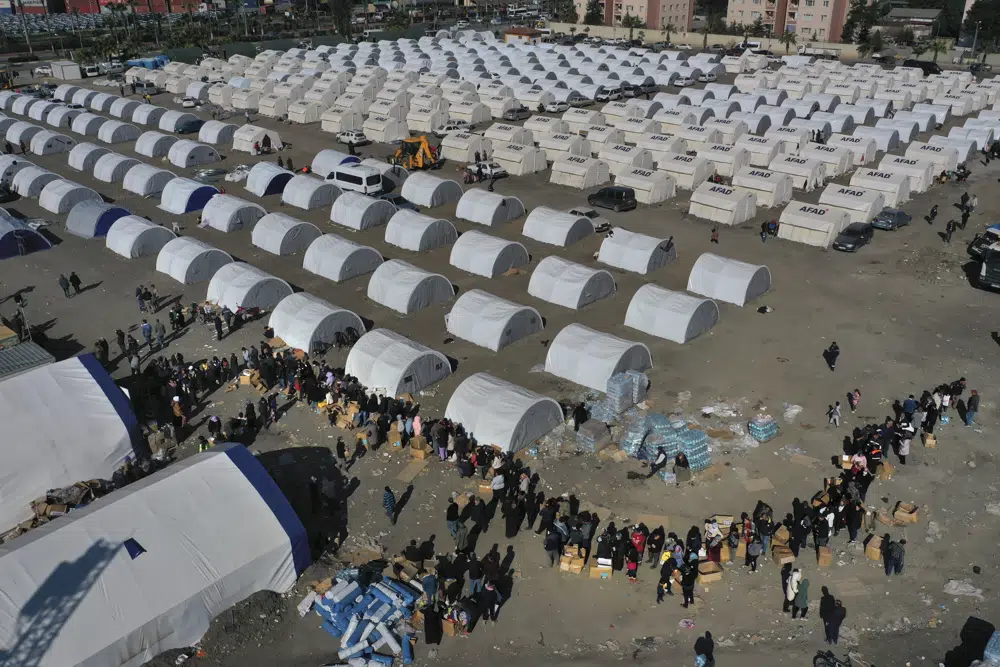

Nearly two weeks after a massive earthquake leveled tens of thousands of buildings and displaced millions of people in Turkey and Syria, many are still struggling to fulfill their basic needs and some are bedding down in tents, factories, train cars, and greenhouses.
People pushed from their homes in the disaster zone described a wide range of conditions: Some were able to find regular hot showers, while others feared freezing to death.
The Turkish government and dozens of aid groups have launched a massive relief effort. The government said Wednesday that more than 5,400 shipping containers have been deployed as shelters and over 200,000 tents dispatched.
But it’s facing a massive disaster. The government says at least 56,000 buildings, containing more than 225,000 homes, were either destroyed by the Feb. 6 quake or too damaged to be used. There is no official figure for the number of people displaced in Turkey’s side of the disaster region, which is home to some 14 million, or 16% of the country’s population.